Meet 12 of our new Morrissey College of Arts and Sciences faculty and hear why they chose their respective fields and what they are working on at Boston College this year.
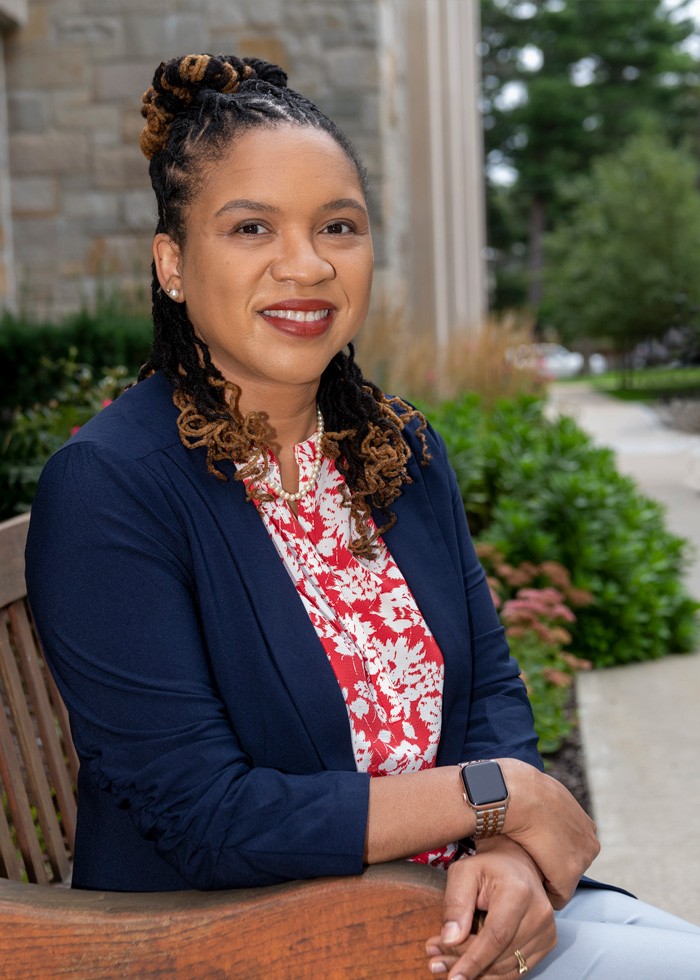
Latrica Best
Associate Professor, Sociology and African & African Diaspora Studies
Ph.D.
The Pennsylvania State University
Where did you grow up?
Kinston, North Carolina.
What are your favorite pastimes?
Baking, spending time with my family, and doing home improvement projects.
What made you decide to go into your field?
In my senior year of high school, I got to take part in a program for students interested in health-related professions. That early experience of conducting research and shadowing an oncologist, along with my undergraduate courses in the sociology of aging and medical sociology, piqued my interest in studying how social and biological factors originating in early life affect health outcomes and subsequently contribute to health inequities.
Of what work or publication are you most proud?
I am a co-editor of an upcoming book that explores Black women's contributions to the production, processing, and consumption of food, and how their roles shape the health and well-being of their families and communities.
What will you work on this year?
I’ll be working on two primary projects. The first explores the different theoretical positions of research groups who integrate biological and genetic data into social science research. The second is a paper with an interdisciplinary group of researchers that examines the use of environmental justice and intergenerational justice frameworks in studying the impacts of climate change on health.
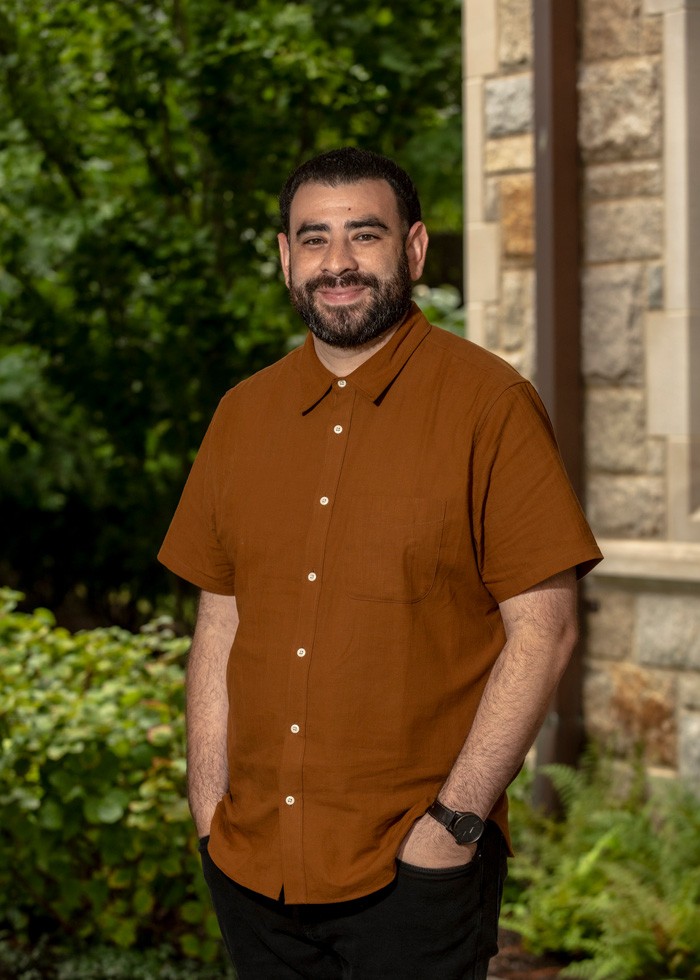
Eddie Bonilla
Assistant Professor, History
Ph.D.
Michigan State University
Where did you grow up?
South Gate, California.
What is your favorite pastime?
I am an avid popular culture consumer, and my number one pastime is attending collegiate and professional sporting events. I’ve visited 19 Major League Baseball parks. On a daily level, though, I probably share more dog videos with friends on Instagram than anything else.
What made you decide to go into your field?
Recognizing the class inequality found across communities in the United States and around the world.
Of what work or publication are you most proud?
My first article, “Latina/o Communists, Activism, and the FBI during the Chicana/o and New Communist Movements.”
What will you work on this year?
Finishing my first book, Homegrown Communists in the Age of Reagan: Multiracial Politics and Socialist Revolution, which focuses on how Latina/o, Asian American, and African American communists participated in struggles for labor and human rights in the 1970s and 1980s. Interconnectedly, I’ll be teaching a course called US Radicalism: Social Justice and the Third World Left, which explores how activists from diverse movements have connected their struggles against social injustices with imagining more just futures.

Maitreyi Das
Associate Professor, Biology
Ph.D.
Indian Institute of Technology Bombay
Where did you grow up?
Bombay (Mumbai), India.
What are your favorite pastimes?
Watching movies, cooking, and traveling.
What made you decide to go into your field?
I am a cell biologist because I am fascinated by the molecular rules that determine life. I am most interested in spatiotemporal patterns that are essential for the proper functioning of cells, the basic unit of life. I love using microscopes to investigate the mysteries of how cells grow and propagate.
Of what work or publication are you most proud?
My independent lab’s project, in which we investigated how cells organize stepwise events in complex processes such as cell division. This project led to several research publications and multiple federal grants.
What will you work on this year?
Expanding our ongoing projects that investigate how cells determine their shape and undergo division, using state-of-the-art techniques and methodologies.
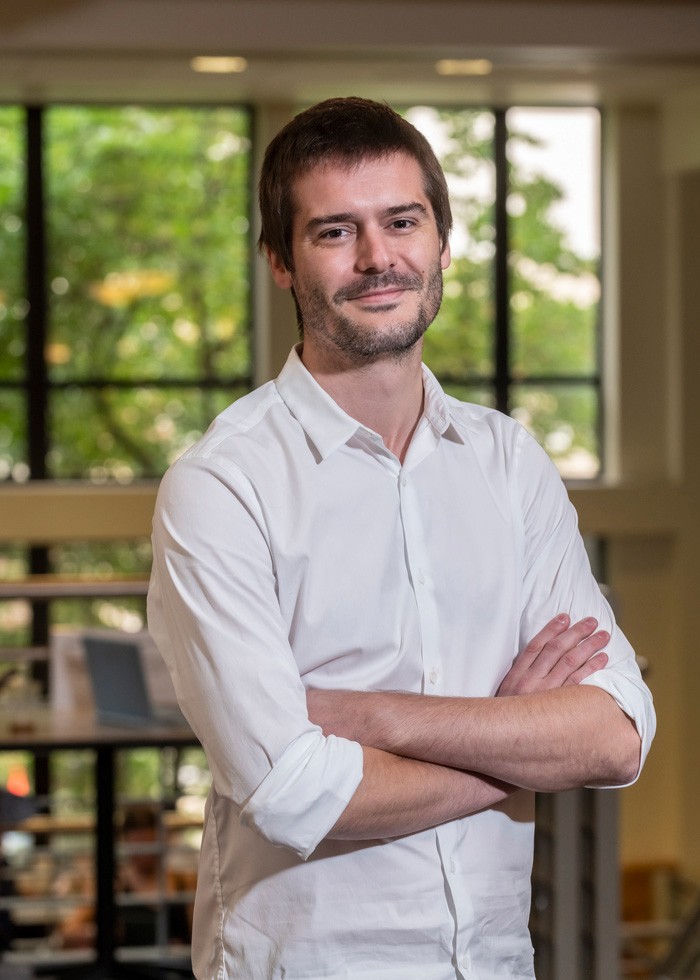
Alexis Grimaud
Assistant Professor, Chemistry
Ph.D.
University of Bordeaux
Where did you grow up?
Cholet, France.
What are your favorite pastimes?
Reading about history and geography, music (preferably live), and travel.
What made you decide to go into your field?
It has been the result of a very slow internalization process, and of different encounters over the years that helped me realize I could develop my creativity in the field of chemistry while working on subjects that matter, both to me and to society.
Of what work or publication are you most proud?
The article "Extending insertion electrochemistry to soluble layered halides with superconcentrated electrolytes," in which my co-authors and I explore the possibility of designing novel materials by fine-tuning their interactions with liquid electrolytes.
What will you work on this year?
Creating novel materials for secondary (rechargeable) batteries and developing new strategies for recycling metals.
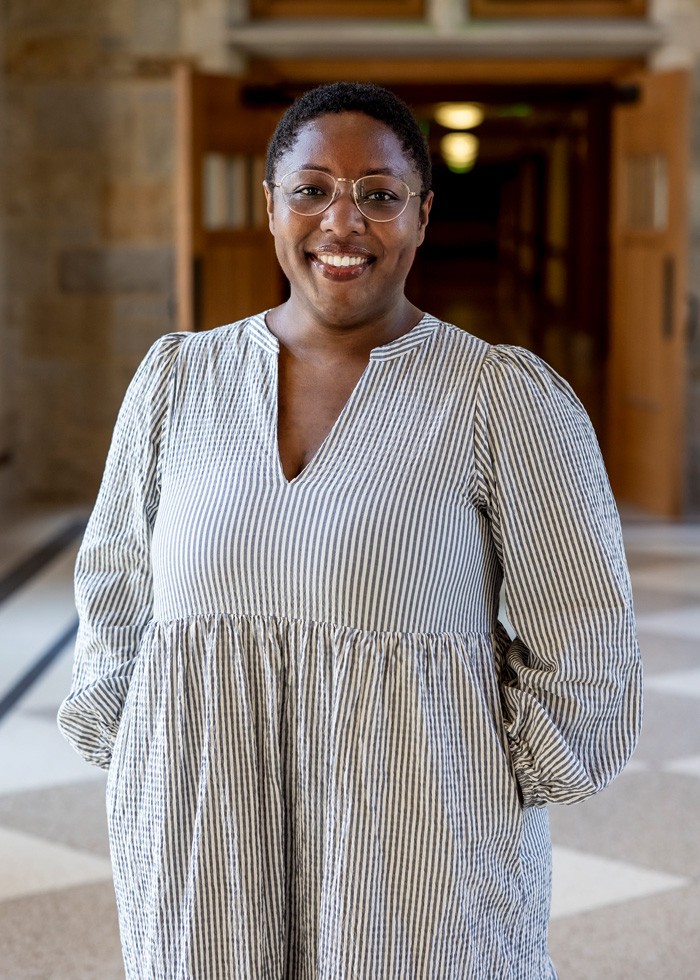
Jovonna Jones
Assistant Professor, English and African & African Diaspora Studies
Ph.D.
Harvard University
Where did you grow up?
Randolph, Massachusetts.
What are your favorite pastimes?
Commentating on reality TV with my family and walking for long stretches of time while listening to my favorite podcasts and playlists.
What made you decide to go into your field?
As a suburban child of the ’90s and ’00s, I spent a lot of time watching TV and reading blogs and magazines related to Black culture, style, and music. Black representation didn't always make me feel "seen," as certain biases around gender, sexuality, class, skin tone, body size, etc. dictated who I saw in images and how they mattered to society. My questions and observations surfaced when I took an African American Studies elective in high school and read James Baldwin, bell hooks, and Michele Wallace. Once I found their work, I found my lane.
Of what work or publication are you most proud?
My article “‘look. look. look.’:The Work of Black Aesthetics in Toni Morrison's Jazz,” published in Callaloo: A Journal of African Diaspora Arts and Letters, became a piece of sheer admiration and appreciation for how Morrison works: how she encounters Black photographs, news stories, and other artifacts, and creates the feeling of a whole living world out of them. In working on it around the time she passed, I learned that writing could be a form of love.
What will you work on this year?
I'm currently researching Black women's rooming houses in the early-mid 20th century. Some of these houses still stand in cities across the country. How might they stretch our historical imaginations of what good housing, family and community, and urban living could mean and do?
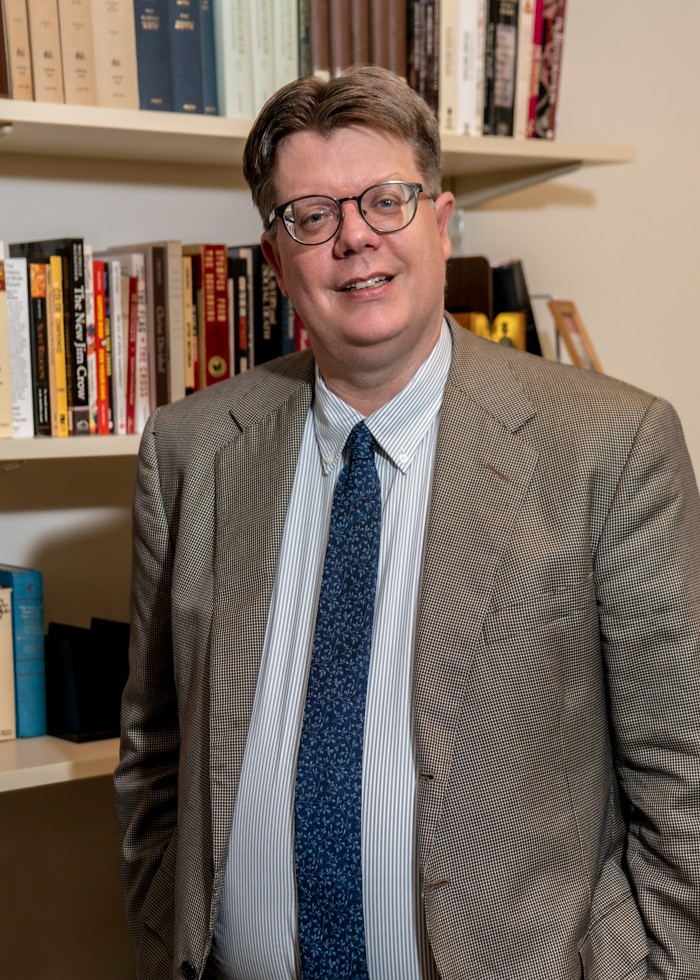
Rev. Daniel Joslyn-Siemiatkoski
Kraft Family Professor of Theology and Director, Center for Christian-Jewish Learning
Ph.D.
Boston College
Where did you grow up?
Windsor, Connecticut.
What are your favorite pastimes?
Listening to music (especially Americana and folk), rooting for the Red Sox, catching up on New Yorker back issues, and spending time with my family.
What made you decide to go into your field?
I was raised as a Christian, and I was exposed to Jewish life and culture in my teenage years in multiple ways. Since then, I have been passionate about finding better and deeper ways for Jews and Christians to understand one another and work for the common good.
Of what work or publication are you most proud?
My book The More Torah, The More Life, which is a commentary on the rabbinic wisdom sayings collection Pirkei Avot that both examines the text on its own terms and offers Christian theological reflections informed by it.
What will you work on this year?
I am beginning a project on the contemporary intersection between antisemitism, racism, and ethno-nationalism. We are living in a moment where scholars need to offer both a deeper understanding of this problem and ways to address it.
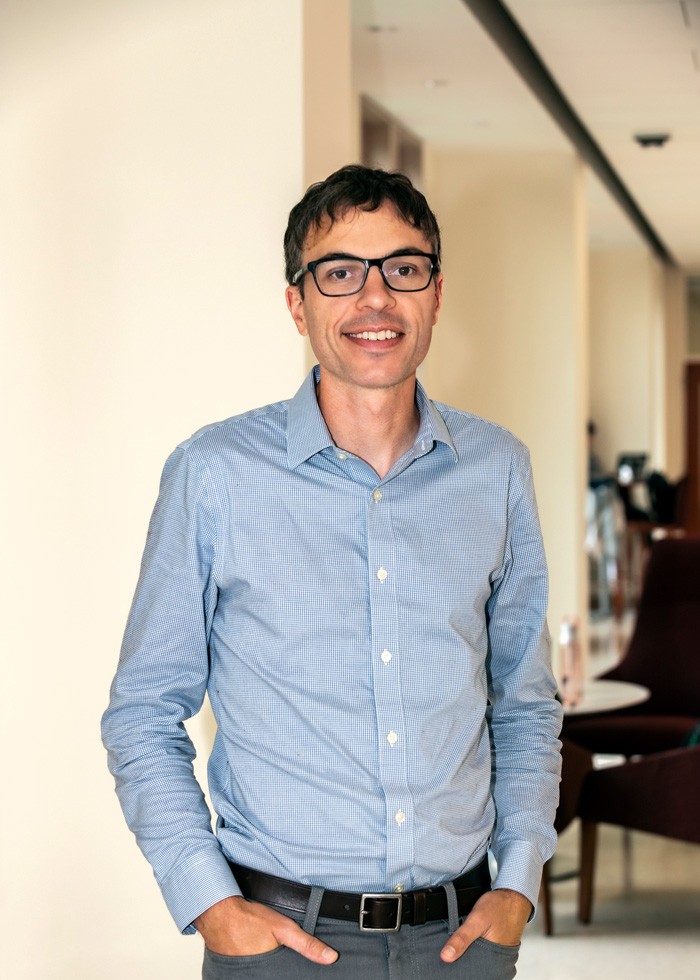
George Owen Mohler
Inaugural Daniel J. Fitzgerald Professor, Computer Science
Ph.D.
University of California, Santa Barbara
Where did you grow up?
Indianapolis, Indiana.
What are your favorite pastimes?
Playing music and ice hockey.
What made you decide to go into your field?
I participated in a Research Experience for Undergraduates (REU) program in college that led me to pursue a Ph.D. in mathematics. Later, I became fascinated by how mathematics and computing can help us understand the massive amount of data in our world.
Of what work or publication are you most proud?
A recent article in Proceedings of the Royal Society A on space-time overdose event patterns, where we observed an increased risk of overdose in the days following a law enforcement seizure. We now have a CDC grant to collect more data and develop new statistical tools to better understand the potential causal mechanisms underlying this association
.What will you work on this year?
I will continue my research on statistical and machine learning approaches to solving problems in urban and network data science. I also look forward to forming new research collaborations here at Boston College.
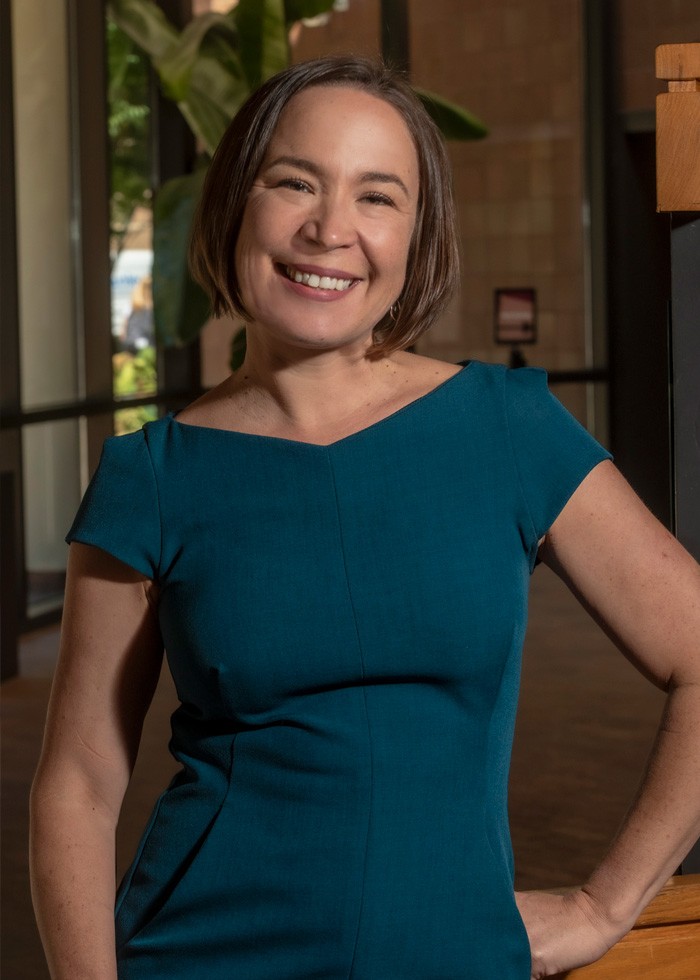
Courtney Elkin Mohler
Associate Professor, Theatre
Ph.D.
University of California, Los Angeles
Where did you grow up?
Mostly in the San Francisco Bay Area, in the foothills of Mount Tamalpais.
What are your favorite pastimes?
Hiking, music, baking, and of course theater.
What made you decide to go into your field?
I have been making theater since I was six years old! But I was brought into the academy by exceptional mentors. Professors like Dr. Beverly J. Robinson and the Kiowa-Delaware playwright Hanay Geiogamah transformed how I saw—and continue to see—theater: as a process that rehearses a more equitable and just world.
Of what work or publication are you most proud?
Critical Companion to Native American and First Nations Theatre and Performance: Indigenous Spaces, which I co-authored with Jaye T. Darby and Christy Stanlake.
What will you work on this year?
I’m currently working on "A Selective Theatrical Genealogy of Settler Colonialism as Environmental Destruction," an article that attempts to track the relationship between theatrical representations of Native American and First Nations characters and settler colonial patterns of environmental destruction.
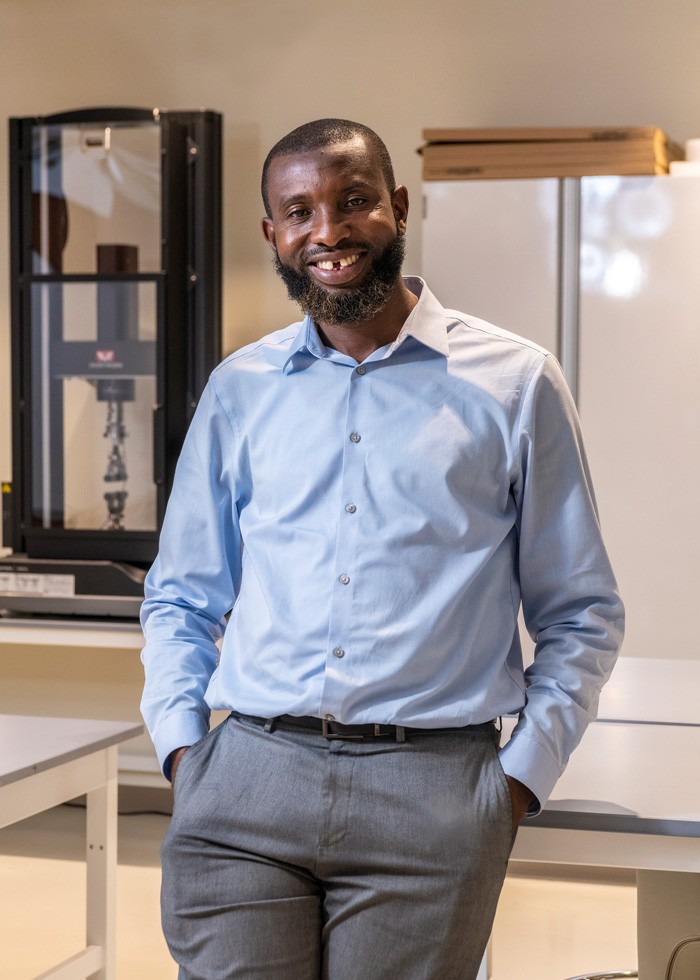
Ali Azeko Salifu
Assistant Professor, Engineering
Ph.D.
University of Surrey
Where did you grow up?
Bolgatanga, Ghana.
What is your favorite pastime?
Playing and watching soccer. I also enjoy watching comedy and cracking jokes.
What made you decide to go into your field?
Growing up, I recognized the barriers that often prevent low-income communities from accessing basic amenities to improve their well-being and living conditions. This experience motivated me to pursue engineering so I could develop low-cost, sustainable, environmentally friendly products to help tackle disparities in access to drinking water and clean energy.
Of what work or publication are you most proud?
A recent article on the mechanochemical pretreatment of bamboo for a waste-free conversion into simple sugars. This work focuses on using locally available resources to engineer biofuels that can help meet the energy needs of developing countries.
What will you work on this year?
I plan to continue my research on converting bamboo to biofuels and engineering low-cost ceramic water filters. I will also be involved in building the new Human-Centered Engineering program.
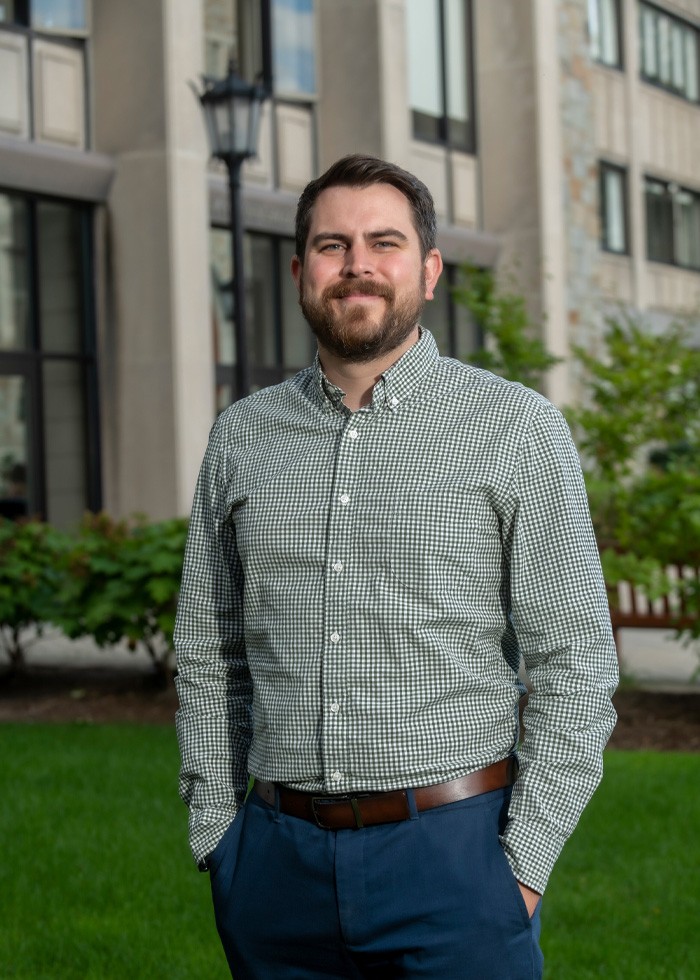
Josh Seim
Assistant Professor, Sociology
Ph.D.
University of California, Berkeley
Where did you grow up?
Spokane, Washington.
What are your favorite pastimes?
Exploring New England with my wife and three kids. We just moved here after spending our entire lives on the West Coast. Everything is new and exciting.
What made you decide to go into your field?
I took an Introduction to Sociology class at a community college in 2006. I instantly fell in love with the subject matter, and I decided then and there that I wanted to become a sociologist.
Of what work or publication are you most proud?
My book Bandage, Sort, and Hustle: Ambulance Crews on the Front Lines of Urban Suffering, which was published in 2020.
What will you work on this year?
I will be analyzing ethnographic and archival data I collected from the Los Angeles County Department of Public Social Services. I’m focused on better understanding the street-level labor processes of the welfare state.
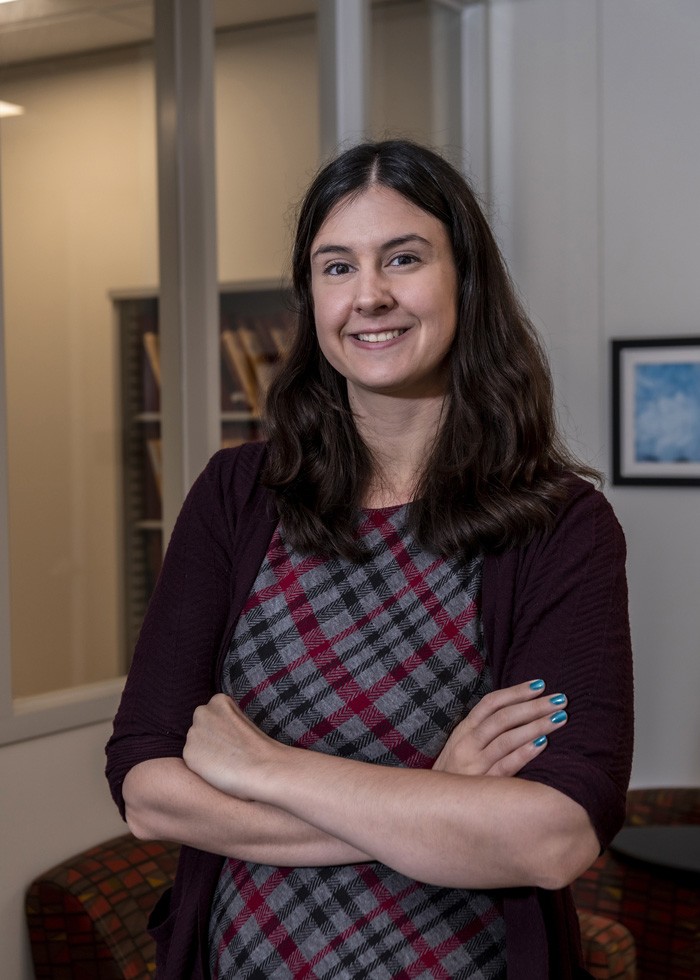
Joanna Venator
Assistant Professor, Economics
Ph.D.
University of Wisconsin-Madison
Where did you grow up?
New Jersey
What is your favorite pastime?
I love to cook and try new recipes. I've been an amateur recipe tester for cookbooks, and I try to make at least one new dish a week. I also enjoy reading, playing board games with friends, gardening, and playing with my cat, Nora.
What made you decide to go into your field?
I loved math when I entered college, but found that I wasn't that interested in solving theoretical math problems. I discovered that economics would let me do fun math while answering questions with real policy relevance. I didn't discover until grad school that economics would, in fact, also involve quite a bit of writing proofs of mathematical theory, and by then I was already hooked!
Of what work or publication are you most proud?
My paper “Undue Burden Beyond Texas: An Analysis of Abortion Clinic Closures, Births, and Abortions in Wisconsin” with co-author Jason Fletcher, which was cited in an amicus brief for the recent Supreme Court case Dobbs v. Jackson Women's Health Organization. It was incredibly rewarding to feel that my work could inform politicians' understanding of ongoing policy decisions.
What will you work on this year?
I will be working on a couple of projects exploring how dual-earner couples decide where to live, and how these decisions impact men and women's earnings. For example, how does access to free relative-based child care impact households' mobility, and what are the consequences of those mobility restrictions for women's earnings?
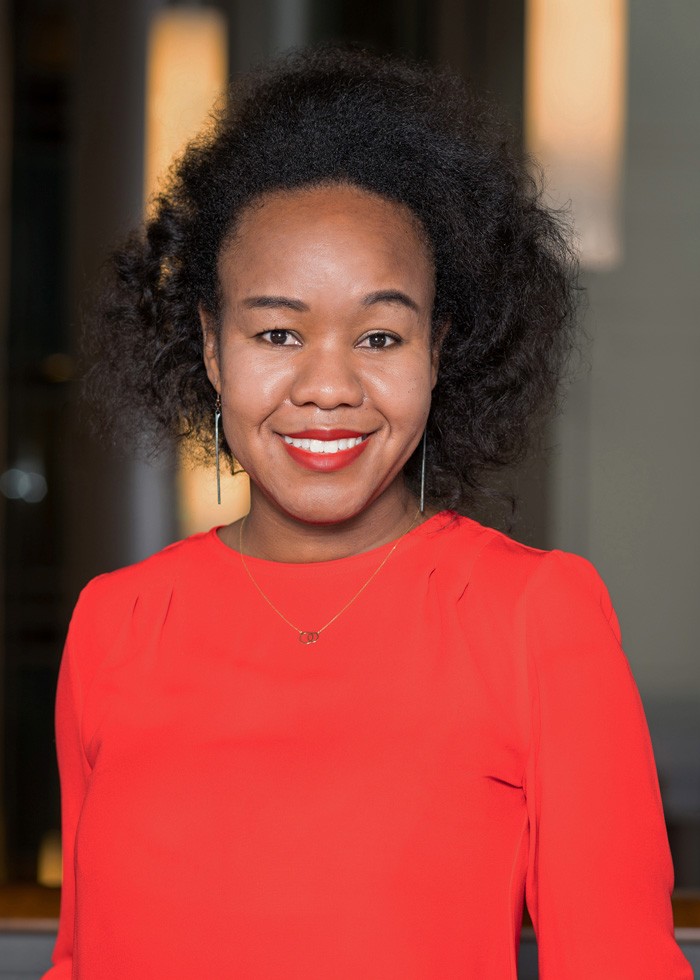
Nelly Wamaitha
Assistant Professor, Theology and International Studies
Ph.D.
Emory University
Where did you grow up?
Nairobi, Kenya. A part of my heart still lives there.
What is your favorite pastime?
Hanging out or traveling with my friends, listening to loud afrobeat music, and books—an obvious one for an academic, I know, but a source of a lot of joy and meaning over the years.
What made you decide to go into your field?
I think every marginalized person struggles at some point to make sense of their "lot" in life, to understand why and how. I see my research into poverty in Africa and inequality among nations as my own clamoring for an answer. And my work in theology is my attempt to make theological sense of an unjust world which is also, at the same time, God's world.
Of what work or publication are you most proud?
My as-yet unpublished research on the Western mythologies that drove British colonialism in Kenya.
What will you work on this year?
Building on insights from my dissertation, I plan to investigate the connection between the independence constitutions of formerly colonized nations and today's inequalities between those nations and Western countries.


